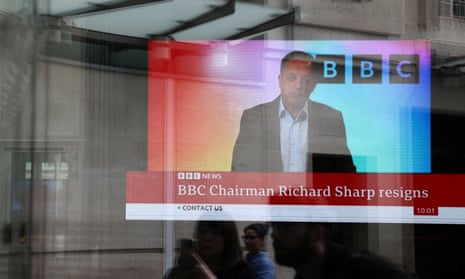Johnson says he will provide unredacted WhatsApps directly to Inquiry
Boris Johnson will provide unredacted WhatsApps to the Covid 19 Inquiry directly, he said in a letter to to the chairwoman on Friday.
“The government yesterday decided to take legal action. It was not my decision to do so,” wrote Johnson. “While I understand the government’s position, I am not willing to let my material become a test case for others when I am perfectly content for the inquiry to see it.”
In the letter addressed to Heather Hallett, Johnson said he would also like to share “any material” on his old phone. Johnson said he was previously told he could no longer access the device safely.
“In view of the urgency of your request I believe we need to test this advice, which came from the security services,” the letter said.
Johnson said he no longer has physical access to his notebooks which were removed from his office by the Cabinet Office, and said he has requested for them to be shared with the Inquiry directly.
Key events
Dame Elan Closs Stephens appointed acting chair of the BBC
Dame Elan Closs Stephens has been appointed as the acting chair of the BBC, the government has announced after Richard Sharp resigned from the position earlier this year following a report which found he breached the governance code for public appointments.
On Friday, the Department for Culture, Media and Sport announced Dame Elan will lead the BBC board from June 27 for 12 months, or until a new permanent chair has been appointed, whichever is sooner.
“It’s a huge honour to be appointed by the Secretary of State as acting chair and I am grateful to my fellow board members for putting their trust in me,” she said.
“As a board, we will champion the licence fee-payer across all of the UK; ensure the BBC is a vital partner for the UK creative industries; maintain trust and drive change to make the BBC fit for a fast-changing media landscape.
“There is much work to be done.”
Dame Elan has been a member of the BBC’s governing body since 2010, first serving as a member for Wales on the BBC Trust and then as the Welsh member of the BBC board.
“I am pleased that Dame Elan will take up the position of acting chair of the BBC and has the unanimous support of the board,” said culture secretary Lucy Frazer. “When she takes over, Dame Elan will provide stability in the leadership of the BBC while a process to appoint a new permanent chair is run.”

Sharp resigned after being found to have breached public appointment rules for failing to declare a connection to a secret £800,000 loan for the UK’s former prime minister Boris Johnson.
While this breach of the rules did not necessarily invalidate his appointment to the role at the public service broadcaster, Sharp said his position was no longer tenable and called it a “distraction from the corporation’s good work”.
Sharp’s decision to resign in April came as the BBC faces suggestions that it has become too close to the Conservative government after years of sustained political pressure and threats to its funding.
Earlier we reported on Boris Johnson’s willingness to provide unredacted WhatsApps to the Covid 19 Inquiry directly.
In a letter to the chairwoman on Friday, Johnson said: “I am not willing to let my material become a test case for others when I am perfectly content for the inquiry to see it.”
Here’s a look at the full letter:
NEW: Boris Johnson says he is sending his unredacted WhatsApps (from May 2021 onwards) to the Covid inquiry direct.
He says he wants to pass the WhatsApps from his old phone to them too pic.twitter.com/bV0DcBrh2v
— Henry Zeffman (@hzeffman) June 2, 2023
The right Covid response? How countries outside UK are also under scrutiny

Jon Henley
Britain’s public Covid-19 inquiry, led by the retired judge Heather Hallett, is far from the first independent national commission around the world to begin examining a given country’s experience confronting the pandemic.
Their formats, mandates – and their progress – vary widely according to systems and traditions, but their task is essentially the same: to assess preparedness, document decision-making, review government response and learn lessons for the future.
Sweden was among the earliest to launch its Covid commission, which – led by a retired head of the country’s supreme administrative court, Mats Melin – produced interim reports in 2020 and 2021 and a final 1,700-page report in February 2022.
Read more on how from Sweden to the US, the handling of the pandemic has been questioned and in some cases, criminal proceedings are under way:

Severin Carrell
Andy Burnham on Thursday evening called for MPs to be elected by proportional representation as part of Labour’s plans for a “radical rewiring of Britain”.
The mayor of Greater Manchester’s proposals were supported by Mark Drakeford, the first minister of Wales, at the Making Britain Work For Scotland rally in Scotland. Labour has proposed sweeping reforms to how UK democracy works, including replacing the House of Lords with a directly elected senate for the UK’s nations and regions.
To applause from an audience in Edinburgh on Thursday evening, Burnham said ensuring that MPs were elected using a system that accurately reflected voters’ choices would prevent a party chosen by a minority of voters having complete power at Westminster.
“I think we need to change the House of Commons as well, I think we need voting reform,” he said. “I don’t believe all people in all places will be equally represented in Westminster until every vote matters.”
Kiran Stacey
Two senior Conservatives have expressed doubts over Rishi Sunak’s controversial decision to launch legal action against the public inquiry into the government’s handling of Covid-19.
George Freeman, the science minister, said he believed the challenge was unlikely to succeed, while the former Downing Street chief of staff Gavin Barwell said it should not have been launched at all.
The government announced on Thursday it would seek a judicial review of the demand by Heather Hallett, the chair of the inquiry, to see unredacted WhatsApp messages and notebooks from the former prime minister Boris Johnson.
Johnson says he will provide unredacted WhatsApps directly to Inquiry
Boris Johnson will provide unredacted WhatsApps to the Covid 19 Inquiry directly, he said in a letter to to the chairwoman on Friday.
“The government yesterday decided to take legal action. It was not my decision to do so,” wrote Johnson. “While I understand the government’s position, I am not willing to let my material become a test case for others when I am perfectly content for the inquiry to see it.”
In the letter addressed to Heather Hallett, Johnson said he would also like to share “any material” on his old phone. Johnson said he was previously told he could no longer access the device safely.
“In view of the urgency of your request I believe we need to test this advice, which came from the security services,” the letter said.
Johnson said he no longer has physical access to his notebooks which were removed from his office by the Cabinet Office, and said he has requested for them to be shared with the Inquiry directly.

Marie Le Conte
Boris Johnson’s messages are just the start of it: the government is run on WhatsApp
For Opinion, Marie Le Conte writes about the worrying trend of off-the-record messaging and Westminster’s problem as one big gentlemen’s club.
What are WhatsApps? No, really, what are they? This may sound like a question asked by an increasingly puzzled grandad at Christmas, but it has become central to British politics.
Westminster has, over the past few weeks, waited with bated breath to see if the messages sent to and from ministers during the pandemic would be handed over to the Covid inquiry. Heather Hallett, who is running the investigation, demanded that the full cache be released before the public evidence sessions began, but to no avail. Boris Johnson has said he has given his messages to the Cabinet Office, which decided on Thursday afternoon to launch legal action to avoid having to pass them on.
If we care about the way that government is run and how records are kept, the three-way tussle between the inquiry chair, mandarins and the former prime minister about whether these messages can remain private concerns all of us.
Covid inquiry v Cabinet Office: who is ahead now deadline has passed?
The already knotty row over Boris Johnson’s unredacted WhatsApps has been even more complicated by ministers launching legal action against the official Covid inquiry.
How did the row begin?
The Cabinet Office has refused to pass on Johnson’s unredacted WhatsApps and notebooks for two reasons. Primarily, senior Whitehall bosses believe they should decide what information is and is not relevant to the Covid inquiry.
But there is another issue at stake. There are said to be many personal and innocuous messages mishmashed in the jumble of potentially tens of thousands of texts.
The Cabinet Office argues that ministers’ privacy is important and that forums should be protected where they can discuss the pros and cons of policy in secret.
There is a third reason, which is not openly admitted to but talked of among high-level government insiders: They fear that handing over Johnson’s unredacted messages sets a precedent, and that further requests would then follow for other ministers, including the prime minister, Rishi Sunak.
How did the government try to avoid complying?
The Cabinet Office initially tried to argue that the chair of the inquiry, Heather Hallett, did not have the right to demand the full unredacted messages.
Government lawyers had vetted the documents, and officials decided that those sections deemed “unambiguously irrelevant” should be withheld from the Covid inquiry.
To further sidestep the requirement to hand the files over, the Cabinet Office later said that after it vetted the documents and gave only redacted versions to the inquiry, it handed the full contents back to Johnson and so was no longer in possession of them.
To break the impasse, Johnson sent some of his WhatsApp messages to a handful of officials at the Cabinet Office, and arranged for his notebooks to be collected. The messages however only date back to May 2021. Anything before then was stored on a separate phone, which the Cabinet Office said he had not handed over.
What will happen next?
An application will need to be made to the high court, which can be done quickly, potentially by the following day.
The Cabinet Office could seek urgent interim relief, which would in effect suspend Hallett’s notice demanding the documents, while the full case is decided. This interim hearing could happen in days.
Hallett could decide instead to put the notice on ice, pending the decision of the court. The whole case, say experts, could be dealt with in weeks.
Kiran Stacey
Labour has promised to reverse changes to the student loan system being planned by the Conservative government in a way that could reduce monthly repayments for graduates.
Bridget Phillipson, the shadow education secretary, said on Friday the tuition fees system was “broken”, but repeated the insistence by her party leader, Keir Starmer, that Labour would not be able to afford to scrap fees altogether.
Starmer’s decision to drop the promise to end fees sparked anger among students and on the Labour left. But Phillipson’s comments in the Times give the first sense of how the party may seek to win those voters back.
The Liberal Democrats have announced that they will table a humble address motion in the commons next week calling for “all material” requested by the Covid 19 inquiry to be released by the government.
“People are sick and tired of the Government’s attempts to duck scrutiny by refusing to hand over these messages in full,” said the party’s spokesperson, Christine Jardine.
Speaking with Sky News, Jardine denied her party is “playing politics” and said bereaved families deserve full transparency.
“Rishi Sunak promised to govern with integrity and accountability, instead it’s just more chaos and cover-ups,” she said.
Cabinet Office has made ‘bad mistake’ refusing to submit files to Covid inquiry, says Tory peer
Good morning and welcome to the UK politics live blog. We begin with news that the government has made a “bad mistake” by refusing to submit Boris Johnson’s unredacted documents to the Covid 19 inquiry, according to former Downing Street chief of staff Gavin Barwell.
“Some of the (WhatsApp) messages might be a bit embarrassing but, nonetheless, I think they’re making a bad mistake,” Barwell told BBC Radio 4’s Today programme.
The remarks come as ministers have launched an unprecedented high court attempt to avoid handing over Johnson’s unredacted WhatsApp messages and diaries to the government-commissioned public inquiry.
Johnson said on Wednesday he had given unredacted material to the Cabinet Office and urged it to share it with the inquiry. But the department is concerned this would set a precedent that could lead to the inquiry’s lead demanding the WhatsApp messages of serving ministers – not least the prime minister, Rishi Sunak.
“It’s important that we get to the truth. And if we can’t see how the Government made the decisions it made, how it got to the point that it did, then people are not going to have confidence in the outcome of the inquiry.”
Join the exciting world of cryptocurrency trading with ByBit! As a new trader, you can benefit from a $10 bonus and up to $1,000 in rewards when you register using our referral link. With ByBit’s user-friendly platform and advanced trading tools, you can take advantage of cryptocurrency volatility and potentially make significant profits. Don’t miss this opportunity – sign up now and start trading!







Recent Comments